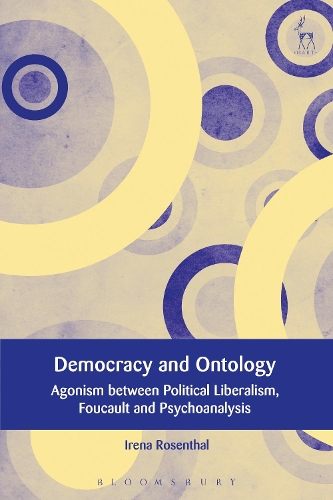
Democracy and Ontology: Agonism between Political Liberalism, Foucault and Psychoanalysis
(Paperback)
Available Formats
Publishing Details
Democracy and Ontology: Agonism between Political Liberalism, Foucault and Psychoanalysis
By (Author) Dr Irena Rosenthal
Bloomsbury Publishing PLC
Hart Publishing
28th May 2020
United Kingdom
Classifications
Tertiary Education
Non Fiction
Political structures: democracy
Methods, theory and philosophy of law
Political science and theory
Centrist democratic ideologies
321.801
Physical Properties
Paperback
228
Width 156mm, Height 234mm
327g
Description
This book investigates the relationship between liberal democracies and ontology, that is, philosophical claims about the constitution of agents and the social world. Many philosophers argue that ontology needs to be avoided in political and legal philosophy. In fact, political liberalism, a highly influential paradigm founded by the philosopher John Rawls, makes the avoidance of ontology a core ambition of its political, non-metaphysical programme. In contrast to political liberalism, this book argues that attending to ontological disputes is essential to political and legal philosophy. Illuminating, criticising and developing ontological arguments does not only enhance our understanding of justice, but also highlights key features of democratic citizenship. The argument is built up by bringing together three traditions of thought that have so far not been confronted with one another: political liberalism, the work of Michel Foucault, and the psychoanalytic theories of Sigmund Freud and Donald Winnicott. The book also investigates more concrete implications of ontological disputes by drawing on several case studies: a Dutch political-legal debate about greeting rituals; an American conflict about the legalisation of religious freedom; and the struggles for resilience of two American social movement groups.
Author Bio
Irena Rosenthal is Assistant Professor at PPLE College at the University of Amsterdam.
